By: debbie lynn elias
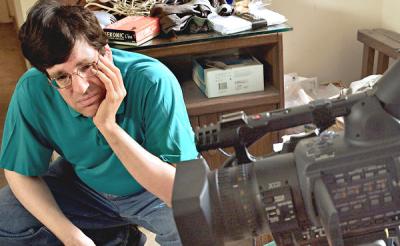
A real privilege for me is featuring OC87: THE OBSESSIVE COMPULSIVE, MAJOR DEPRESSION, BIPOLAR, ASPERGER’S MOVIE. A documentary written and co-directed by my fellow Philadelphian and Temple RTF alum, Bud Clayman, this is without a doubt one of the most honest and heartfelt stories you will ever see as Clayman opens up about his life and coming to terms with the aforementioned multiple debilitating mental illnesses and his quest for “normalcy” in the abnormal world in which we live.
Bonding over our individual recollections of Temple University, cheesesteaks, WPVI Action News, Larry Kane, Jim O’Brien, Jim Gardner, Dave Roberts and Philadelphia, I can say in all honesty that Bud Clayman is one of the most delightful, engaging, humorous and gregarious people I have ever had the pleasure to know. Describing himself as “a ham as a kid”, for Clayman to suddenly be stricken to the point of emotional and mental immobilization with these illnesses late in the game after college and then go through years of in-patient residential treatment and recovery at Project Transition, it’s important to know what triggered this documentary.
With minute attention to detail, Clayman’s memory is sharp as a tack when recalling his journey. “I was in this writer’s class. They went around the class and asked everybody, ‘What topics do you want to write about?’ I said, basically, that I wanted to write about therapy. [The instructor] said, ‘Go to work.’ I wrote an essay on therapy. I read it to the class and this guy next to me said, ‘Oh, therapy empowers me, too.’ I wrote about how my first therapist had really empowered me and got me to talk responsibility for my life, and that I had some control over my life which I didn’t really feel I had as a kid. I went home thinking this would make a good idea for a documentary. That’s when I knew that I had to make a film. The film was originally going to be called Therapy and it was going to be about peoples’ experiences in therapy. But then it involved into OC87.”
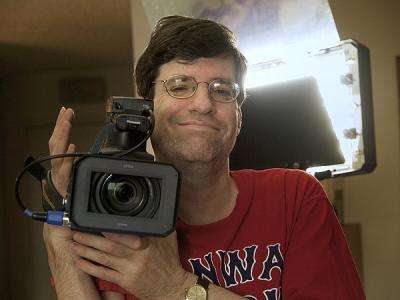
With his concept roughed out, Clayman “contacted Scott Johnson, our 2nd lead director in command on the film. Scott had a psychology background and a writing background and a media background, and he was a program director at Project Transition. I told Scott my ideas and he gave me a lot of links to mental health sites and different things. He got me on the idea of mental health recovery, like an alcoholic is in recovery. That’s really where the film took shape. We didn’t really get together to work for about a year because I wanted to do a lot of stuff on my own, a lot of research. It didn’t really work out so I came back to him a year later. We started working on, I guess we would call it, actualities or scenes for the film. The only scripted scene in the film is the Lost in Space scene, but the other scenes were just where I could interact with people and we could get behavior on camera, interviews and things like that. The film evolved from that point.”
Interspersing footage and photographs of Clayman throughout his life, including some of his own student film work, with present day video diaries and interviews, and a very fun spoof of a Lost in Space episode from the 60’s, OC87 is an educational, engaging and eye-opening stream of consciousness as Clayman bravely “bares his soul” and talks about the internal battle he wages daily just to make it through a day in his continuing efforts to come to terms with his illnesses and function “normally” in society. There are times that the level of personal intimacy is so intense that one can’t help but wonder the level of difficulty for Clayman in addressing the subject matter. “I always enjoyed talking on camera to people. I used to do plays in school. So, it wasn’t hard. I kind of like to share myself with people so it wasn’t hard.”
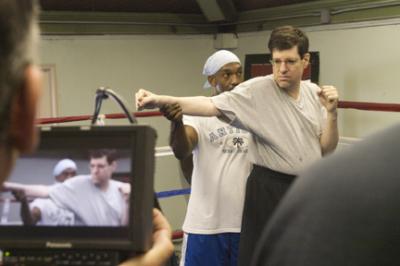
Inviting the cameras into his home, his mother’s home, his father’s office, we see and hear first-hand Clayman’s perceptions of not only his life, but life in general, as well as those views of his parents. Interviews, not only with mental health professionals, but with a spokesperson and champion for individuals with bipolar disorders, Maurice Benard of “General Hospital”, provide touchstones and encouragement for others dealing with similar conditions, something Clayman believes is important to convey with this documentary.
Although very open with his narrative and voicing his feelings, I was surprised at the candor in which Clayman and his father discussed the senior Clayman’s own journey to eventually acknowledging and accepting his son’s condition. Difficult for any parent to admit that a child is less than perfect, and given the generational and East Coast mind set, Mr. Clayman himself was quite candid during on-camera interviews as he voiced his long time doubts. One of the most moving segments of the film, the look on Mr. Clayman’s face as he spoke of the past, the present and his own stubbornness is quite telling of the paternal pride he eventually gained in his son and his accomplishments. For Bud Clayman it’s important to note that “My dad and I really came together the last couple years of his life. It’s through the film that that happened. Not through the actual filming, but just through him supporting me with the funding and the backing of it. He was there for me in the end. As my mom says, if that had not happened, for selfish reasons I think I might have lived with a lot of guilt the rest of my life. . .but definitely, we came together in the end.”
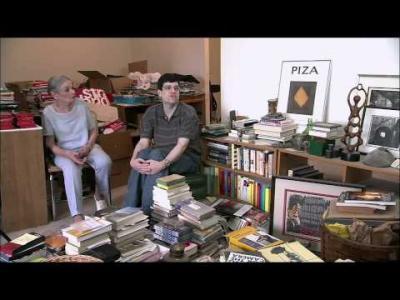
Telling are the personal diaries which provide glimpses into Clayman’s thoughts, psyche and heart as he engages, or tries to engage, in some of the most mundane of daily tasks. With the camera at Clayman’s side almost 24/7, there are times the film feels claustrophobic, adding to the realization and experience of what Clayman must feel everyday. Revealing is footage as he embarks on new adventures in life like speed-dating, singing karaoke, and letting his mother clean his slummishly kept apartment.
Co-directed by Clayman with Glenn Holsten and Scott Johnston, OC87 doesn’t fall into the trappings of third-party manipulation or dramatization and retains its focus and the personalization Clayman so desperately wants and needs. Interesting is that one facet of Clayman’s O.C.D. is that “I must control every thought and every action perfectly”, including the making of this documentary. So for him to relinquish some control to others, is in and of itself, a great step forward in Clayman’s management of his condition. Describing it as “a challenge because I am used to kind of being in control and I do subscribe to the auteur theory a lot. Ur film is unified but as a working experience, I think it’s better if you have one director. But this particular film, it’s just how it turned out that we had three directors. I don’t think I could have made this film just turning the camera on myself.”
Structurally, the film is tightly knit, something which Clayman credits to his editor, Kathleen Soulliere. “I call her the Dee Dee Allen of documentary editing. She just did a great job.” And giving credit where credit is due, Clayman is quick to point out that it was “great to work with” both Holsten and Johnston.
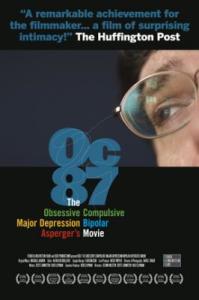
During my exclusive interview with Clayman, his voice was confident and caring when talking about his mother who has championed him “100 percent, 200 percent” his entire life. Having seen the finished product, “7, 8, 9 10 times…she’s very proud that I’ve done this. That makes me feel good that she likes it.” A commonality the world over, if mom likes it, that’s what really matters.
As Clayman moves ahead “trying to enjoy life again”, he is executive producing and directing segments of a new project, The Recovery Diaries, an off-shoot of OC87. And although because of his history, Clayman has a “love-hate relationship with film”, he is celebratory in his film projects as they “give me a sense of being in control, telling a story, being on the set with other people, knowing I’m going to be in the editing room.” Will he now make this his life’s endeavor? “I don’t know where I’m ultimately going to be at or if this is my first love. It was at one point.”
For now, Bud Clayman is a man on a mission. Putting one foot in front of the other and taking each day one day at a time, OC87: THE OBSESSIVE COMPULSIVE, MAJOR DEPRESSION, BIPOLAR, ASPERGER’S MOVIE is one man’s journey to “normal” that you don’t want to miss.
Directed by Bud Clayman, Glenn Holsten and Scott Johnston.












